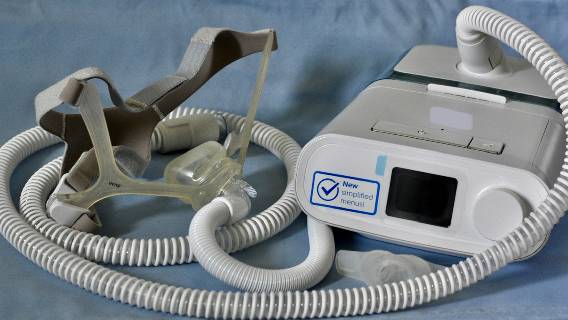
The U.S. Food and Drug Administration has received tens of thousands of recalled Philips CPAP medical device reports, which include deaths.
Since April 2021 there have been close to 70,000 complaints with 168 deaths, the FDA stated in an Aug. 16 update. The reports were associated with PE-PUR foam breakdown or suspected foam breakdown.
The bulk of the complaints came within the last few months, from May 1 to July 31. During that time period the agency received more than 48,000 medical device reports, with 44 deaths among them.
Philips recalled a number of CPAP, BiPAP and ventilator devices in June 2021 for potential adverse effects linked to degrading sound abatement foam and toxic gases released from the foam. Some of the potential side effects from recalled devices include respiratory issues and cancer.
After the recall, patients began filing CPAP lawsuits, claiming the device caused them to develop cancer and that Philips knew of the risk well in advance of the recall.
As of Aug. 15, Philips faces 323 lawsuits in multidistrict litigation in Pennsylvania and hundreds more class action claims seeking economic damages.
Philips: Cancer Risk No Higher than Other CPAP Devices
On Aug. 11, shortly before the FDA’s MDR announcement, Philips released an update on the recalled devices and cancer risk.
“The foam may degrade into particles that might enter the device and then possibly be ingested or inhaled. It had been originally thought that volatile organic compounds (VOCs) may have been emitted, which after additional testing has been found to not deliver harm,” the manufacturer said.
Philips’ findings were based on studies in two publications that found cancer risk in Philips CPAP users was not higher compared to its competitors.
Repair and Replace Program to Continue into 2023
The massive Philips CPAP recall also left many people without devices they need to treat sleep apnea. If left untreated, sleep apnea can lead to many health risks, including increased risk of diabetes, stroke and heart problems.
Philips also provided an update on its repair and replace program for recalled devices. As of July, Philips has shipped 1.4 million devices to users in the U.S. and 3 million repair kits and replacement devices globally.
Initially, the repair and replace program was supposed to conclude in September 2022, but the company moved the date to early 2023.
Users can still register on Philips’ website to participate in the program.